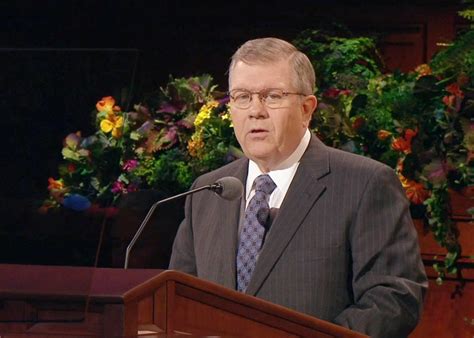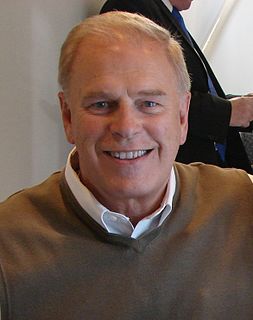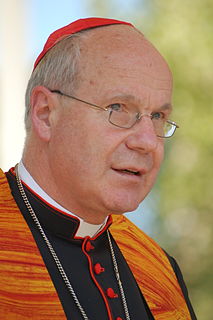A Quote by Allan F. Packer
At the beginning of each chapter, a heading tells us about what is happening in the chapter. We can ask, "What was going on here? What was this person feeling?" When we take time to look more closely at the scriptures, we can better understand what they can teach us. This will build our self-confidence and our testimony.
Related Quotes
Among the older records, we find chapter after chapter of which we can read the characters, and make out their meaning: and as we approach the period of man's creation, our book becomes more clear, and nature seems to speak to us in language so like our own, that we easily comprehend it. But just as we begin to enter on the history of physical changes going on before our eyes, and in which we ourselves bear a part, our chronicle seems to fail us-a leaf has been torn out from nature's record, and the succession of events is almost hidden from our eyes.
A lot of Christians have been taught a story that begins in chapter 3 of Genesis, instead of chapter 1. If your story doesn't begin in the beginning, but begins in chapter 3, then it starts with sin, and so the story becomes about dealing with the sin problem. So Jesus is seen as primarily dealing with our sins.
In our own lives, having a mind-set of expecting to win increases our odds of winning. It helps us get better results. And better results help us increase our credibility and self-confidence, which leads to more positive self-expectancy, and more winning - and the upward cycle continues. It becomes a self-fulfilling prophecy.
What I do usually is read the book first, for pleasure, to see if my brain starts connecting with it, as a movie. And then, if I say yes, I read it again, only this time I take a pen and, inside the book, I say, "Okay, this is a scene. I don't need this. I'm going to try this. I'm not going to take this." And then, I use that book like a bible and each chapter heading, I write a menu of what's in that chapter, in case I ever need to reference it. And then, I start to outline and write it. I get in there and it starts to evolve, based on having re-read it again.
I think our shepherds, our pastors, can take for instance, Chapter Four [of Amoris Laetitia], 'Vive l'amore' ('How to live love'). It's a great catechesis. You can take it chapter by chapter, passage by passage, and work through it in the parish, in the communities. It's a great catechesis on marital and familial love. And I think as pastors, we can use this for our pastoral work.
Our Heavenly Father is the Father of our spirits, and Jesus Christ is the Creator of this world. They know and understand us and the world around us better than anyone else. Looking to a higher source for knowledge and power can help us far more than relying on the wisdom of the world. We need to have the Spirit and look to the prophets and our priesthood leaders. We also need to look to the scriptures, which contain God's words to holy men.
Jesus Christ does not teach us a spirituality “of closed eyes”, but one of “alertness”, one which entails an absolute duty to take notice of the needs of others and of situations involving those whom the Gospel tells us are our neighbours. The gaze of Jesus, what “his eyes” teach us, leads to human closeness, solidarity, giving time, sharing our gifts and even our material goods.
We are great mysteries. No matter what we imagine we may know, even for all the facts we might gather, we don't know each other. Never do, probably never will. Our reputations depend on the opinions of the ill informed. We all have better moments than anybody ever knows, and so do all the others. We are, each one of us, books that are read by critics who only glanced at the chapter headings and the jacket flap. Each one of us is a secret, and on that basis we ought to treat each other with the deepest respect.
If Mother Culture were to give an account of human history using these terms, it would go something like this: ' The Leavers were chapter one of human history -- a long and uneventful chapter. Their chapter of human history ended about ten thousand years ago with the birth of agriculture in the Near East. This event marked the beginning of chapter two, the chapter of the Takers. It's true there are still Leavers living in the world, but these are anachronisms, fossils -- people living in the past, people who just don't realize that their chapter of human history is over. '
Narcissists are everywhere in this ripe age of self-love, which amazes me because so much in life would seem to foster humility. Each of us is a potential source of foolishness, each of us must endure the consequences of the foolishness of others, and in addition to all of that, Nature frequently works to impress upon us our absurdity and thereby remind us that we are not the masters of the universe that we like to suppose we are. - Odd Thomas - Odd Apocalypse by Dean Koontz pg 62 chapter 8































